Water Scarcity, Food Security Concerns Prompt Global Land Grab
Area nearly the size of France has been purchased, leased for food production around the world while Africa, South America, parts of Europe are targeted by cash-rich, food-poor nations.

By Andrea Hart and Brett Walton
Circle of Blue
Last August Hassad Food, a year-old agricultural finance company owned by the government of Qatar, announced that the tiny Middle East emirate’s primary food security investment group would change its funding strategy. Instead of securing its food supply principally by purchasing tens of thousands of acres of arable land in Africa, Asia, and Europe – a global trend that has stirred international concern and a grassroots backlash in some of the planet’s poorest agricultural regions — Hassad Food would invest in food and farm companies.
“In many cases these deals are not win-win situations,” Nasser Mohamed Al Hajri, the company’s chairman, told reporters. “We don’t want to be in a situation where the rich are taking away food and land of the poor.”
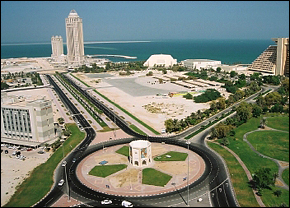 .
.
But late last month Hassad Foods changed course again. The company signed a roughly $1 billion agreement to develop farmland in Sudan, a north African nation emerging from civil war and with millions of acres of arable land that is being eyed for food production by water- and resource-scarce nations on other continents.
“This is just the beginning on which I hope we can build on to secure food for Qatar, Sudan as well as the world,” Al-Hajri said in comments published by Gulf Times last month.
More than 250,000 acres of Sudan farmland is involved in the agreement, the latest in a concerted global land buying spree by nations facing limits on land, water, and manpower to ensure their food security. Qatar and other nations are quietly purchasing or leasing vast tracts of farmland in land-rich nations that need new capital, technology, and markets to thrive.
Just in the last few weeks, according to news accounts, a joint venture between Pharos Financial Group, a fund management firm based in Dubai, and London-based Miro Holdings International, which specializes in agriculture assets management, announced plans to spend $350 million to buy farmland in Africa and Romania.
South Korea announced it will spend nearly $26 million to buy land in Paraguay and Uruguay. South Korean investment companies have rented 94,000 hectares in Mindoro in the Philippines to produce corn. And Gaeunpam, a South Korean agricultural corporation, is planning to develop 52,000 acres of farmland for Korean farmers to use in the Bulgan province of Mongolia, according to news reports.
This week in Rome, the three-day United Nations Food and Agricultural Organization’s World Summit on Food Security will focus on farmland investment, paying particular attention to Qatar, South Korea and other big private and public investors including Saudi Arabia and China. La Via Campesina, the Indonesia-based global peasants movement, which has been critical of the practice, estimates that cross-border investments in farmland have tied up over 110 million acres of farmland worldwide, or an area about two-thirds the size of France. During the summit’s opening statements leaders acknowledged that despite climate change constraining the global water supply, agriculture productivity must increase by 70 percent by 2050 to meet with growing population demands.
While government authorities and investors see the land deals as necessary to ensure the stability and quality of life in their countries, the largely hidden practice of major cross-border farmland purchases also is stirring considerable concern. According to a recent report in The Manila Bulletin in August, a Filipino lawmaker and farmer named Rafael Mariano has called for a government investigation into a deal between the local governments of Mindoro provinces with Jeonnam Feedstock Ltd., a deal the lawmaker says represents a “new wave of global grabbing” and is “a threat to land rights of farmers and indigenous peoples.”
The chairman of a senate committee in the Philippines, Senator Jinggoy Ejercito Estrada, has referred to richer nations buying up land in poorer nations for their own food security as “agri-colonialism,” according to a report in the Philippines’ Daily Tribune in July. “Instead of helping develop these lands for our own farmers’ benefit, is the government now in essence selling these prime, productive properties to foreigners?” Estrada said.
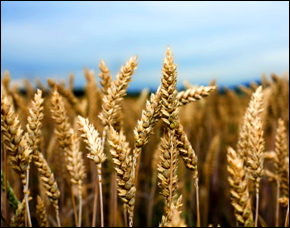 .
.
According to farmland and investment authorities, cross-border private land investments have been occurring since early 2000. More recently, though, the value of the inquiries has increased, potentially resulting in huge land purchases that some critics call “land-grabs.” And they are likely to increase.
A World Economic Forum Water Initiative report released earlier this year found that “if forecasts for future water demand are accurate, and reforms to trade do not occur, rapidly industrializing economies across South Asia, the Middle East and North Africa, supporting approximately 2.5 billion people, will be looking elsewhere to acquire water-rich land for their food.”
“Governments pushing these deals, such as Saudi Arabia or South Korea, see outsourced food production as a new strategy to feed their own people without relying on international trade,” said La via Campesina in a statement this month. “Private investors see agricultural land in emerging economies as a new source of guaranteed returns in light of ongoing high food prices. Either way, this farmland grab is turning the food crisis into an opportunity for even more profits as the expansion of export-oriented agribusiness is at the heart of it. Small scale farmers are losing critical access to land and water, and local communities will be further cut off from access to food.”
But according to a 2009 International Food Policy and Research Institute study, which lists deals announced in the media, a lot of land acquisitions are in their preliminary stages. An expert from the World Bank who spoke with Circle of Blue and other experts who attended the European Development Days in Stockholm stated that these deals are falling through or falling short of original requests because of public outcry against the investment, insufficient funding and poor communication between investors and government negotiators.
Latin America’s Milk and Honey
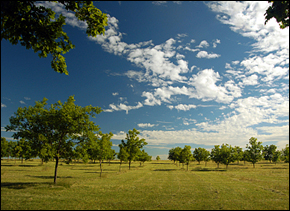
Dave Ramaswamy, a partner at Allied Venture, a Montevideo-based consulting company that offers advice on agro-finance in Latin America, assists with inquiries and brokering deals from private investors interested in South American farmland. The company does not deal with multinationals or governments. Ramsawamy’s view of the farmland investment trend is more supportive.
“Brazil, Argentina, Uruguay and Paraguay – this area is one of the biggest agricultural powerhouses in the world,” said Ramaswamy, in an interview with Circle of Blue.
When the company was formed in 2002, its clientele were wealthy private investors, mostly U.S.-or Latin American-based foreign businessmen, drawn to the region because of falling farm prices – a result of the regional economic collapse at the time. While most of their land deals are still with private investors, whom Ramaswamy declined to name, there has been a recently shift in the motivation and location of investors. As of late, the company has received more inquires from investors in the Asia Pacific region and Middle East because of growing food insecurity as a result of water scarcity and climate change. Asian investors, unlike ones from Europe or the U.S., are more interested in leasing land rather than owning it because it returns higher yields, he said.
South American countries, like Brazil and Argentina, have some of the highest renewable freshwater supplies, the amount of precipitation and imports of water, according to the U.N. Food and Agriculture Organization (UNFAO).
Meanwhile countries with growing populations, like India and China, he said, are shifting to more service-based economies and consequently turning away from heavy agriculture production. “If you just take countries like India and China, who have lots of family farmers, you know the land per acre and capital is shrinking and that lots of people are moving away from farming and into service occupations,” he said.
India is especially limited in capacity and facing acute water scarcity and drastic climate change, including the melting of Himalayan glaciers that feed into a system of rivers that are lifelines for the region. But what India and others plan to do to help farmers make the transition to different economic sectors, especially those in remote rural parts of their countries, remains uncertain.
For Ramaswamy, this moment of crisis is an opportunity for Latin American and African countries to become respected players and integrate into the global economy. He also argues that these deals translate into uplifting economic opportunities, not modernized neo-imperialism because countries that work with Allied Ventures have established, privatized agricultural systems.
“This is bringing capital to regions with scarce capital,” he said. “Agriculture has held up pretty well in the economic crisis because six-and-a-half billion people need to eat every day – there’s no holiday from eating.”
Reality on the Ground
Before the end of the year the World Bank is expected to publish new guidelines for cross-border farmland purchases. The bank has collaborated with the FAO, International Fund for Agriculture Development (IFAD), and the U.N. Conference on Trade and Development (UNCTAD) to compile seven principles of conduct and practice. The principles were introduced in September during discussions in Japan with 40 to 50 national governments to flesh out the regulatory document, tentatively titled: “Securing land tenure and improving livelihoods: Towards a set of principles for responsible agro-investment.”
In March 2010, the World Bank is expected to release research that examined case study countries, such as Pakistan and Mozambique. The research is an attempt to catalog actual transactions and compare deals to establish general outline of the legal and financial processes involved. So far their findings counter much of the concern expressed by La vie Campesina and other critics.
“It is more private investors, and a lot of it is national (domestic), rather than foreign investment, so I think there is a little bit reporting bias because the press focuses on the sensational thing,” said Klaus Deininger a Land Tenure Adviser, Agriculture & Rural Development Department at the World Bank, in an interview with Circle of Blue. Deininger is one of the authors of the draft guidelines.
Camilla Toulmin, director of International Institute for Environment and Development, also found that the land deals aren’t as big as those discussed during preliminary negotiations. “You very often find that the planned land allocation is much larger than the actual amount of land subsequently transacted, which is then often quite a bit bigger than the amount of land put into production,” Toulmin said during the European Development Days in Stockholm last month.
But the reality of food and water scarcity in regions around the Persian Gulf and in China leave the door open for growing inter-governmental action and agreements. African farming unions and activists have been particularly concerned about the fairness at the ground level of the land deals.
In February one of the biggest potential deals between South Korean company Daewoo and the Madagascar government eventually turned into the biggest uproars. Daewoo was hoping to lease almost one-half of the country’s arable land for food and biofuel production, much like what the British-based company Sunbiofuels has done, though smaller in scale, in Ethiopia and Tanzania. But public outcry and other complications ended the deal.
“If governments have to engage foreign investors,” said Stephen Muchiri, chief executive of the East African Farmers Federation, told Circle of Blue in an email interview, “then the process has to be well scripted to a) protect the environment b) safeguard all rights of affected citizens c) ensure that food security of the hosting nation is guaranteed d) the process has to be participatory and all inclusive of stake-holders in the sector e) have to be regular monitoring and evaluation of such projects with locals playing a big role in this f) the project has to have an exit strategy embedded in it such that the local farmers can sustainably engage in it g) it should be time bound –that is reasonable…this is however not being done and thus the acrimony,”
Muchiri also expressed concern that these deals were not detailed enough to include water scarcity issues.
Deininger assured that transparency is at the heart of the proposed regulations.
“One of the things we’re trying to push is that governments should be very careful not to give away very valuable assets at bargain prices, especially under conditions that are neither socially nor environmentally sustainable.”
Sudan’s Spotlight:
That, of course, is what lies behind concerns about the Sudan land deals. For years Sudan has been called a potential breadbasket for Africa. The perception of vast land and water resources is now attracting foreign investors trying to realize that sobriquet – but for Arab countries, not the Sudanese. The northeastern African country has the most signed government-to-government land deals, according to a 2009 IFPRI report. One United Arab Emirates agreement is already being implemented.
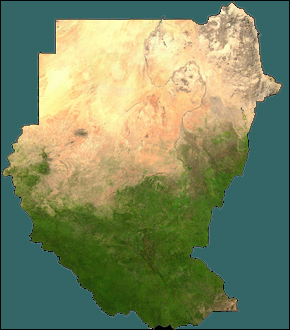
“The whole Arab world needs of cereal, sugar, fodder and other essential foodstuffs could be met by Sudan alone,” the Director-General of the Arab Organization for Agriculture Development told the Al Sharq newspaper.
Resolution of the Sudanese civil wars helped increase foreign direct investment in Sudan from $1 billion in 2000 to $14 billion in 2007. Though much of the money has gone to the oil sector, investors from water-scarce Gulf States, like Qatar, see Sudanese farmland as a backdoor to food self-sufficiency.
As of 2002 only 16 percent of Sudan’s arable land was being cultivated, according to the FAO. Most of the land is rain-fed, but the 11 percent that is irrigated produces over half of the agricultural output. However, only 43 percent of equipped area is being irrigated due to lack of maintenance and financial support. Despite this, irrigated agriculture is becoming more important because of extreme differences in dry season and wet season precipitation and more intense periods of drought. The African Sahel, which runs through central Sudan, is expected to see crop yields decrease due to heat stress from a warming climate, according to a study published in Nature. Increased investment in agriculture will be needed to respond to the environmental changes.
Land acquisitions have involved a range of investors. Private Saudi company HADCO invested in Sudan with the backing of the Saudi government’s King Abdullah Initiative for Agricultural Investment Abroad, which provides financing for home companies. Syria signed a government-to-government agreement with Sudan in 2002 to develop farmland with the freedom to export the entire crop. The deal with the Qatar Investment Authority (QIA) signed last month is a joint venture with the government of Sudan to cultivate up to 250,000 hectares.
The land boom has prompted at least one case of a well-connected individual obtaining land from the government in hopes of securing foreign investment. Jarch Capital acquired a 70 percent stake in 400,000 hectares of land controlled by the son of an army official.
The apparent abundance of land belies the fact that someone may actually be living there and trying to cultivate it. “Concepts such as ‘idle’ land often reflect as assessment of the productivity rather than the existence of resource uses: these terms are often applied not to unoccupied lands, but to lands used in ways that are not perceived as ‘productive’ by government,” the International Institute for Environment and Development reports.
Government involvement in most land deals in Africa often results in dispossession for smallholders. In Sudan, even though formal land tenure is recognized, the state owns 95 percent of the land. Any large-scale displacement could have disastrous consequences for social stability. Prolonged drought and competition for water and land are two widely accepted factors for the war in Darfur.
Follow the latest news updates on farmland negotiations here. Also read Circle of Blue’s coverage of the FAO’s 2009 World Food Security Summit here and here.
Andrea Hart is the assistant news editor at Circle of Blue. Brett Walton is a Circle of Blue reporter.

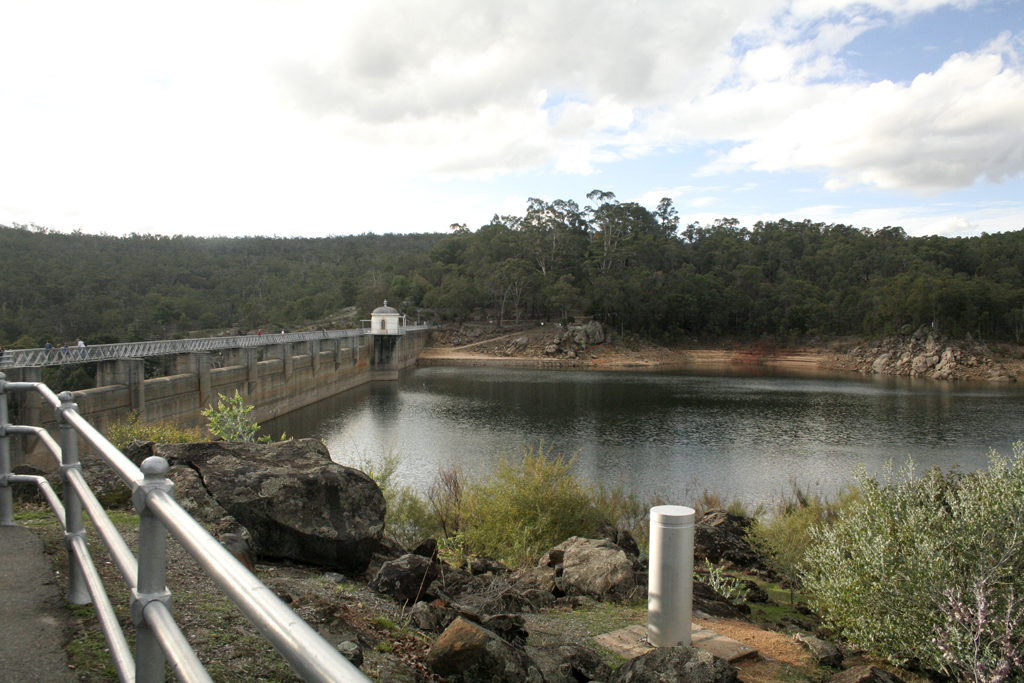
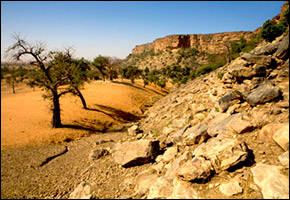
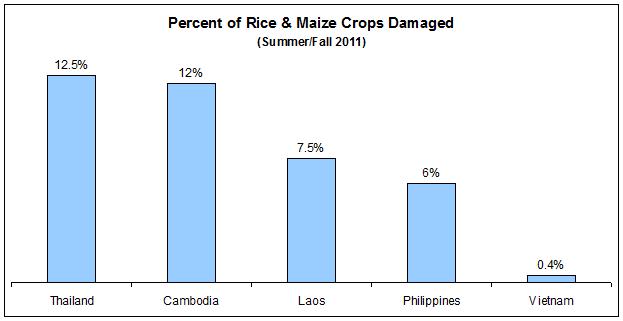


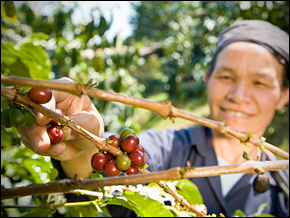
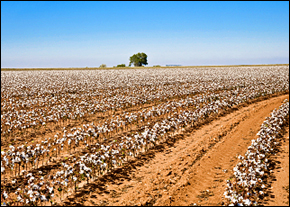
Leave a Reply
Want to join the discussion?Feel free to contribute!